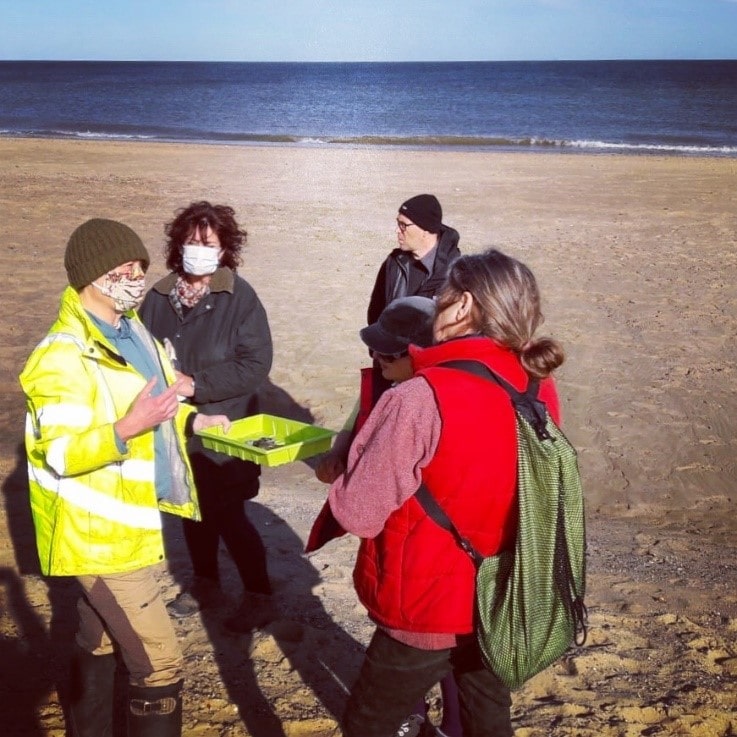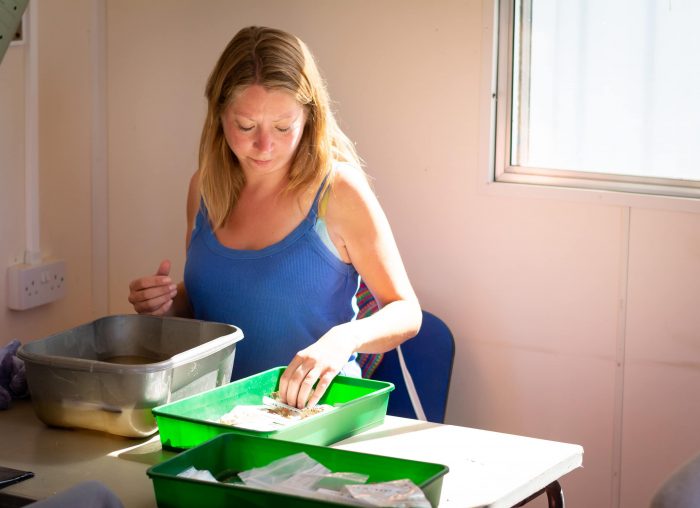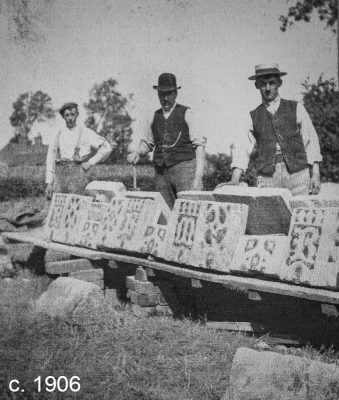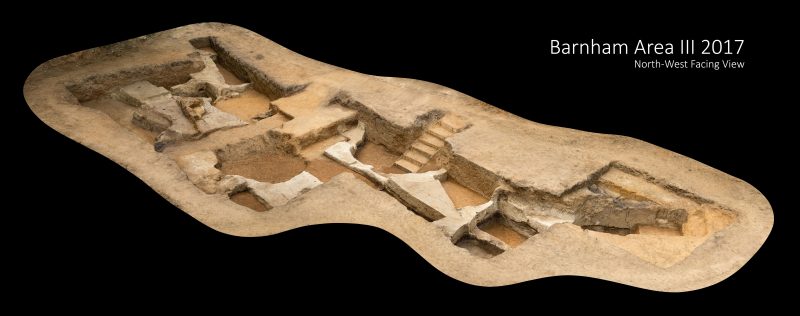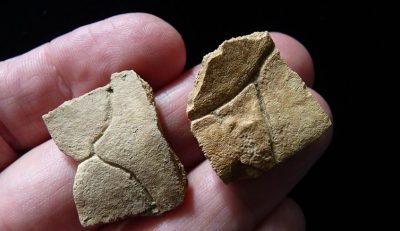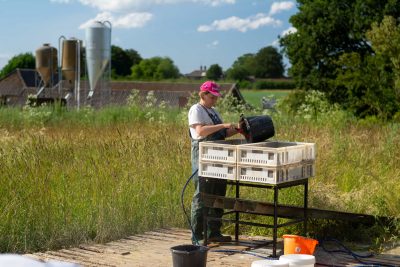This Sunday saw our first Community Beach Sieving Event at Bacton. The event was planned, with the support of North Norfolk District Council, as part of our Palaeolithic Artefact Discoveries from the Sandscaping area (PADS) Project and we hope that it will be the first of several community events – pandemic permitting.
We couldn’t have hoped for better weather for our first community event and we were joined by two enthusiastic groups of volunteers – a mix of experienced collectors, faces we recognised from previous events that we’d run locally, and some complete beginners.
Since the emplacement of the 1.8 million cubic metres of dredged material on the beach between Bacton and Walcott in 2019, the beach profile has been modified by wave action. As the beach has been reshaped it has become a favourite spot for local collectors to visit and their careful beach walking efforts have been repaid by a large collection of Palaeolithic material. The sieving event was designed to take advantage of the wave cut ‘cliff’ features to study the structure, composition and artefact density of these deposits. Establishing the density of artefacts within these deposits and any variations across the Sandscaping area, provides us with useful data alongside the large number of artefacts that have already been reported.
During the two 90 minute sessions on Sunday we sieved around 2.5 cubic metres of the deposit, this yielded one possible artefact, a small struck flake. While this is a small return for the effort it does point to a sparse presence of artefacts within the beach deposits. It also highlights the value of collecting from the beach surface where artefacts may be more visible and larger surface areas can be searched and does contribute to our knowledge of these dredged deposits.
Although the Sandscaping deposits offer a unique research opportunity we are well aware of the power of the North Sea to reshape the coastline – the ‘cliff’ features in the Sandscaping deposits bear witness to the sea’s power. Many of the Pathways to Ancient Britain project team have worked along this coastline for the best part of two decades and the last thing that we would want to do is to negatively impact the communities we have received so much support from. All the material, bar the one possible artefact, was left on the beach to be redeposited by the waves.
The Palaeolithic Artefact Discoveries from the Sandscaping area (PADS) Project is funded by North Norfolk District Council and is currently set to run for six months, from September 2020 to February 2021.

